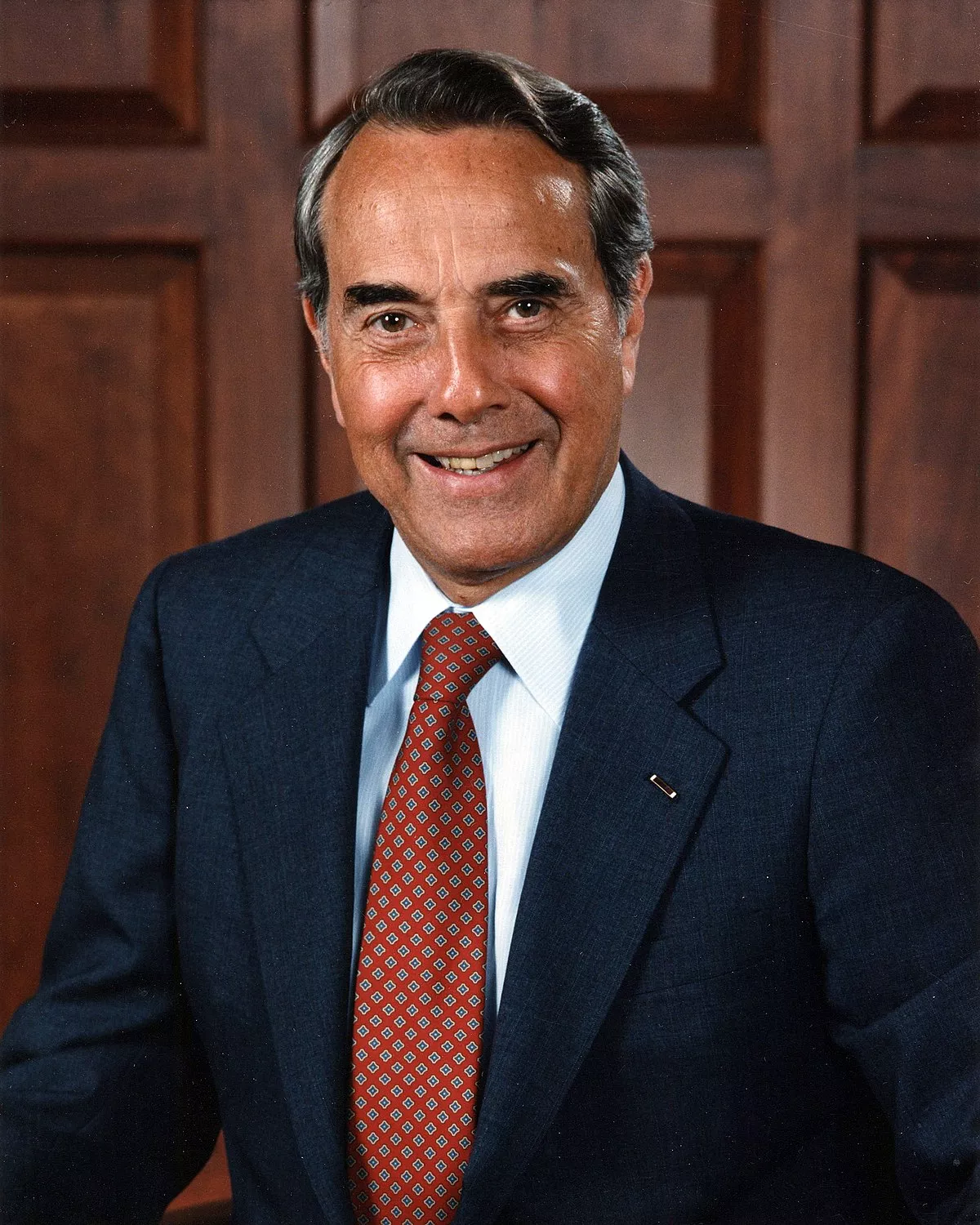 1.
1. Robert Joseph Dole was an American politician and attorney from Kansas who served in both chambers of the United States Congress, the United States House of Representatives from 1961 to 1969 and a member of the United States Senate from 1969 to his resignation in 1996 to campaign for President of the United States in the 1996 election.